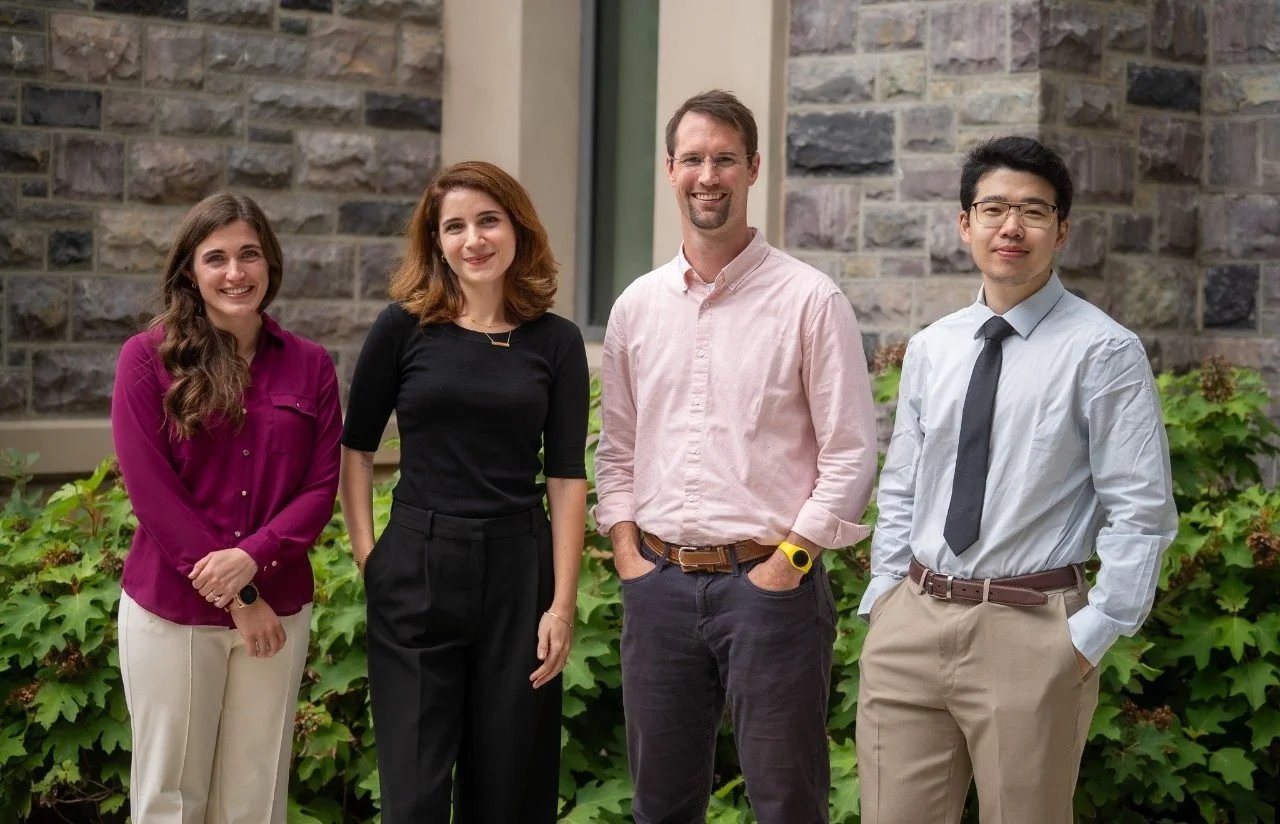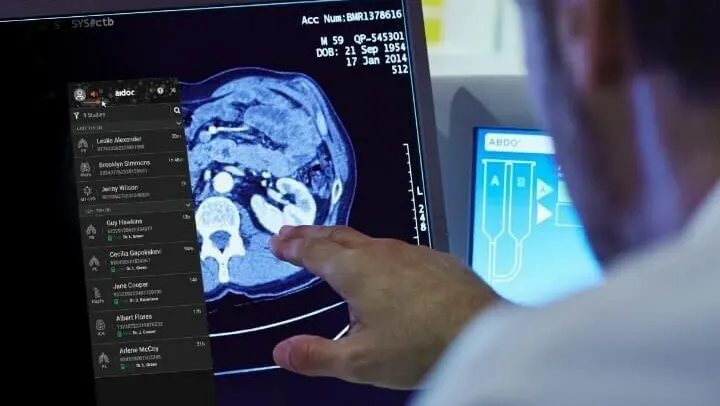Tools & Platforms
Virginia Tech expands faculty in AI, systems, and manufacturing

The Grado Department of Industrial and Systems Engineering at Virginia Tech has added four new faculty members for 2025, part of a strategy to expand expertise in high-demand fields such as data-driven decision making, advanced manufacturing, and artificial intelligence.
The department prepares students for careers in engineering through research, teaching, and industry collaboration.
New faculty join the department
The new appointments are Alkim Avsar, assistant professor in systems engineering; Eric Brubaker, assistant professor in systems engineering; Kelsey Coleman, associate professor of practice and Learning Factory director; and Yuhao Zhong, assistant professor in manufacturing engineering.
Eileen Van Aken, professor and department head, says: “We’re thrilled to welcome these outstanding faculty to our team. Our students will benefit from their perspectives, and their work will expand our capabilities in areas critical to the future of engineering and the success of our graduates.”
Research and teaching areas
Avsar, who joins from Arizona State University, earned a Ph.D. in systems engineering from Stevens Institute of Technology. Her work combines systems engineering, behavioral science, game theory, and human factors to examine how social factors influence engineering decision making. She is currently teaching a graduate course in systems engineering.
Brubaker, previously a senior complex systems engineer at NASA, holds a Ph.D. in mechanical engineering from Stanford University. His research addresses human-AI collaboration and designs for complex systems that tackle challenges in water, energy, transportation, and healthcare. He is teaching AI for systems engineering.
Coleman, formerly at Eaton Corporation, manages workforce development programs and directs the Learning Factory, which provides students with hands-on training in areas such as additive manufacturing, robotics, and digital factory systems.
Zhong, who completed his Ph.D. at Texas A&M University, focuses on data science applications in manufacturing. His research develops explainable AI and computer vision tools to improve quality, safety, and performance in Industry 5.0 environments.
The ETIH Innovation Awards 2026
Tools & Platforms
AI drives medtech investment in 2025

Artificial intelligence companies have been a focus of investment in the medical technology sector so far in 2025. Although the number of funding rounds decreased in the first half of the year, AI startups were favored by investors, according to a recent report by PitchBook. For example, earlier this month, Aidoc received $150 million in funding for an AI foundation model.
AI devices have also been the subject of recent acquisitions. In August, Tempus agreed to buy Paige, a company making digital pathology software, for $81 million. More recently, GE Healthcare built out its AI portfolio with the planned acquisition of brain MRI software firm Icometrix.
Read on for recent deals involving AI-enabled medical devices covered by MedTech Dive:
Tools & Platforms
This country is first in the world to make AI a minister, and its duties are fighting corruption

Albania is making an artificial intelligence-powered digital assistant named Diella its minister, the world’s first artificial intelligence system to serve as a government minister, tasked with overseeing public procurement to eliminate corruption. Albanian Prime Minister Edi Rama announced the appointment this week, promising the AI minister will make Albania “a country where public tenders are 100% free of corruption.Diella, meaning “sun” in Albanian, will manage all government contract decisions previously handled by human officials, ensuring complete transparency in public spending. The AI minister represents a radical shift from traditional governance, with Rama describing her as “the first cabinet member who isn’t physically present, but is virtually created by AI.”
Digital assistant becomes government decision-maker
Diella originally launched in January as an AI-powered virtual assistant on Albania’s e-Albania platform, helping citizens obtain government documents and services. Dressed in traditional Albanian attire, she has already processed 36,600 digital documents and provided nearly 1,000 services to users through voice commands and electronic stamps.The AI minister will now assume responsibility for evaluating and awarding all public tenders, with decisions transferred from human government officials in a “step-by-step” process. This represents a major shift in how governments worldwide might leverage artificial intelligence for governance.
Albanian public skeptical about AI minister’s success
Public procurement has long been plagued by corruption scandals in Albania, a Balkan nation experts describe as a hub for international money laundering from drug and weapons trafficking. Graft has reportedly reached the highest levels of government, complicating the country’s European Union accession goals.Rama aims to lead Albania into the EU by 2030, making anti-corruption efforts crucial for membership eligibility. However, the government provided no details about human oversight mechanisms or safeguards against potential AI manipulation. Public reaction remains mixed, with skeptical Facebook users commenting “Even Diella will be corrupted in Albania” and “Stealing will continue and Diella will be blamed.“The parliament is expected to vote on Rama’s fourth-term cabinet, including the AI minister, when it convenes Friday. Rama won his fourth consecutive term in May elections and has previously advocated for AI as an anti-corruption tool that eliminates bribes, threats, and conflicts of interest in government decision-making.
Tools & Platforms
Inside ‘Project Maverick,’ Dell’s Modernization Plan for the AI Future

There’s a top-secret project underway inside Dell.
Most of Dell’s employees aren’t meant to know about it, and those who do have signed NDAs and been told to keep communications about it to a minimum.
“Do not mention the Project Maverick name,” reads a NDA agreement seen by Business Insider.
But despite its secrecy, “Project Maverick,” as it is codenamed, isn’t a revolutionary piece of hardware or groundbreaking new technology. It’s Dell’s plan to overhaul the company’s operations and streamline all systems, data, and processes into a standardized platform.
Dell sees this transformation as “critical” for its AI strategy and future success, and the company has brought on a team of Deloitte consultants to help guide the project, internal documents about the project obtained by Business Insider show.
“The ‘game’ is changing — we must be far more nimble, decisive, and quick,” one internal document says. “What made us successful in the past won’t take us where we need to go.”
Documents seen by Business Insider include an onboarding presentation and a “guidance and resources” document uploaded to the project SharePoint, describing its scope and intended outcomes. Business Insider has also seen an NDA agreement sent to a Dell employee.
“While we’re not going to discuss the specifics of our internal processes, we prioritize innovation and service to support our team members, customers, and partners,” a Dell spokesperson told Business Insider.
‘Severely outdated’ systems
Project Maverick’s mission is to modernize the 41-year-old company’s vast IT sprawl, part of which Dell inherited during its acquisition of EMC in 2015, the second-largest technology merger ever.
According to the onboarding presentation, Dell’s operations run on roughly 4,700 applications, 70,000 servers, and more than 10,000 databases. That environment is “holding us back,” Dell said in the presentation, because it is so complex and expensive to maintain.
The tangle of systems forces staff into “manual processes and excessive reporting,” diverting energy away from pursuing innovation, Dell said.
One slide breaking down specific functions described Dell’s subscription capabilities as “severely outdated,” its customer resource management as a source of “confusion and inefficiency,” and its stock keeping units, or SKUs, as a driver of “go-to-market delays.”
Two Dell employees told Business Insider that the quality of the tools hampers their daily work. They asked to remain anonymous as they are not permitted to speak publicly, but Business Insider has verified their employment.
“Our tools suck. They’re very old,” said one employee, who has been with the company for more than 10 years.
“It is very hard for us to do our jobs in the Dell ecosystem as it is today,” said a second Dell employee. “Many systems don’t talk to each other, or only do a small piece of a broader process, requiring users to switch between several tools to complete a task.”
The push to consolidate tools is “long overdue,” the person added.
A third employee told Business Insider that while some tools “aren’t very intuitive,” they had few complaints about the ones they use daily.
What will change at Dell?
Dell has been working on Project Maverick since November 2024 and is set to launch for the client solutions group — the part of Dell that sells personal computers, monitors, and other hardware — in February 2026, in line with the start of Dell’s financial year, according to a project timeline seen by Business Insider.
An internal FAQ says there will be a single cutover day, after which most existing systems will be decommissioned. “Friday, it’s going to work one way, Monday, it’s going to work a different way,” explained the Dell employee who has been at the company for more than 10 years and who works on Project Maverick.
The company’s other key business line, the infrastructure solutions group — which provides servers, storage solutions, and other IT infrastructure — is scheduled to be updated in May 2026.
Tony Avelar/AP Images for Dell Inc.
Project Maverick will mean “less time on manual tasks, better data and insights for decision-making, faster response to customer needs, a more agile, competitive Dell,” according to the internal documents.
Changes will include creating a single global catalog, consistent lead times, and automated order management capabilities.
“This is a bold opportunity to deliver the benefits our teams have been asking for and a key enabler of Modern Dell,” the project documents say.
Alongside Project Maverick, major changes have been hitting other parts of Dell’s business. In the last two years, the company’s global head count has dropped by 25,000, marking a 19% decline in personnel.
In July, Jeff Clarke, the longtime vice chairman and COO, announced in an internal memo that he was stepping in to take on CSG’s “day-to-day leadership.”
CSG is the company’s biggest revenue driver, but the division’s revenue has declined for the last three years.
Dell announced another major leadership shift this week — Yvonne McGill, the chief financial officer, has stepped down after nearly 30 years at the company.
Transforming a legacy brand for the AI future
Michael Dell founded his eponymous brand in 1984, under the name PC’s Limited, and it quickly established itself as a trusted maker of office PCs.
Since 1992, Dell has been a Fortune 500 company — barring four years from 2014 when it was taken private — and Dell himself is the world’s 11th-richest man, according to the Bloomberg Billionaires Index.
The company has evolved into a major server and data storage provider, benefiting from the AI boom as demand surges for the infrastructure required to deploy the new technology.
But Project Maverick demonstrates how successful legacy brands must reorient all their operations for an AI-driven future.
Joe Depa, the global chief innovation officer at the Big Four professional services firm EY, told Business Insider that major transformations are “inevitable” as companies implement AI.
“Implementing AI isn’t about dropping a tool into old workflows — it requires rethinking processes, systems, and even business models through an ‘AI-first’ lens,” he said.
Minimizing your operational complexity is crucial because “siloed, manual systems can’t handle the scale, speed, or intelligence AI enables.”
Companies that re-architect their operating models around AI “will set the competitive standard,” Depa added.
Have a tip? Contact this reporter via email at pthompson@businessinsider.com or Signal at Polly_Thompson.89. Use a personal email address, a nonwork WiFi network, and a nonwork device; here’s our guide to sharing information securely.
-

 Business2 weeks ago
Business2 weeks agoThe Guardian view on Trump and the Fed: independence is no substitute for accountability | Editorial
-
Tools & Platforms1 month ago
Building Trust in Military AI Starts with Opening the Black Box – War on the Rocks
-

 Ethics & Policy2 months ago
Ethics & Policy2 months agoSDAIA Supports Saudi Arabia’s Leadership in Shaping Global AI Ethics, Policy, and Research – وكالة الأنباء السعودية
-

 Events & Conferences4 months ago
Events & Conferences4 months agoJourney to 1000 models: Scaling Instagram’s recommendation system
-

 Jobs & Careers2 months ago
Jobs & Careers2 months agoMumbai-based Perplexity Alternative Has 60k+ Users Without Funding
-

 Podcasts & Talks2 months ago
Podcasts & Talks2 months agoHappy 4th of July! 🎆 Made with Veo 3 in Gemini
-

 Education2 months ago
Education2 months agoMacron says UK and France have duty to tackle illegal migration ‘with humanity, solidarity and firmness’ – UK politics live | Politics
-

 Education2 months ago
Education2 months agoVEX Robotics launches AI-powered classroom robotics system
-

 Funding & Business2 months ago
Funding & Business2 months agoKayak and Expedia race to build AI travel agents that turn social posts into itineraries
-

 Podcasts & Talks2 months ago
Podcasts & Talks2 months agoOpenAI 🤝 @teamganassi


